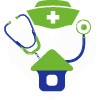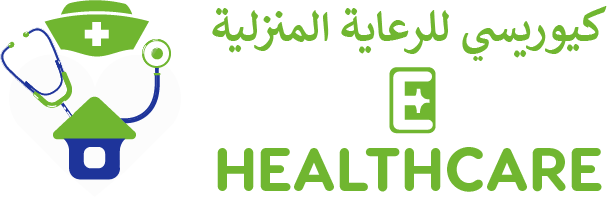Archives

Undergoing surgery is a life-altering event that requires careful consideration and preparation. While the surgical procedure itself is a significant milestone, the journey to healing does not end in the operating room. In fact, it is just the beginning. Post-operative care, the vital care provided after surgery, plays a pivotal role in ensuring a patient’s smooth road to recovery. In this comprehensive guide, we will explore the ten major reasons why post-operative care is of utmost importance and how it impacts a patient’s recovery journey.
Complications Prevention: Navigating the Path to Health
The first steps on the road to recovery are crucial, and complications can derail progress. Post-operative care acts as a vigilant guardian, closely monitoring the patient’s condition to identify and address potential complications early on. From monitoring vital signs to assessing the healing process, healthcare professionals employ various tools to ensure complications are nipped in the bud.
Pain Management: Easing the Burden of Recovery
Pain is an inevitable aspect of the recovery process after surgery. However, proper post-operative care ensures that patients do not bear this burden alone. Pain management strategies are employed, ranging from medication to alternative therapies, to promote comfort and well-being during the healing journey.
Wound Care: Nurturing the Healing Incisions
The incision site is the gateway to the body’s healing process. Post-operative care involves meticulous wound care to prevent infections and facilitate optimal healing. From dressing changes to advanced wound care techniques, healthcare providers cater to the unique needs of each patient’s incision site.Infection Prevention: Safeguarding Against Unwanted Intruders
Infections can disrupt the healing process and lead to severe complications. Post-operative care emphasizes infection prevention through various means, including prophylactic antibiotics, proper hygiene practices, and constant monitoring for signs of infection.Monitoring Vital Signs: Keeping a Steady Compass on Recovery
The road to recovery can be unpredictable, and sudden changes in vital signs can indicate potential problems. Post-operative care involves regular monitoring of vital signs such as heart rate, blood pressure, and respiratory rate to ensure early intervention if needed.
Fluid and Nutrition Management: Fueling the Healing Engine
Healing is a high-energy process that demands adequate hydration and nutrition. Post-operative care ensures that patients receive the necessary fluids and nutrients, either through oral intake or intravenous administration, to support their bodies on the path to recovery.
Preventing Blood Clots: Safeguarding Against a Silent Threat
Immobilization during the recovery period can increase the risk of blood clots. Post-operative care focuses on preventing this silent threat through early mobilization, compression stockings, and blood-thinning medications, reducing the risk of potentially life-threatening complications.Medication Management: Orchestrating the Symphony of Healing
In the post-operative phase, patients often require medications for pain relief, infection prevention, and other specific purposes. Post-operative care involves diligent medication management to ensure patients adhere to their prescribed regimens and experience the full benefits of their medications.Educating the Patient: Equipping for the Recovery Journey
Knowledge is power, and post-operative care equips patients with essential information to navigate their recovery journey with confidence. From self-care instructions to recognizing warning signs, patient education forms a crucial component of post-operative care.Emotional Support: Healing the Mind and Spirit
Healing after surgery encompasses not only the physical aspect but also the emotional well-being of patients. Post-operative care extends a compassionate hand, providing emotional support and reassurance to help patients cope with the anxiety and emotions that may arise during recovery.Importance and Benefits of Having a Caregiver at Home
Personalized Attention and Care
A caregiver provides one-on-one attention to the patient, catering to their specific needs and requirements. This personalized care ensures that the patient’s recovery journey is smoother and more comfortable.Assistance with Activities of Daily Living (ADLs)
After surgery, patients may find it challenging to perform basic activities such as bathing, dressing, or preparing meals. A caregiver assists with ADLs, ensuring the patient’s safety and comfort while they regain their strength.Medication Reminders and Management
Taking medications as prescribed is crucial for a successful recovery. Caregivers help manage medication schedules, ensuring that the patient receives the right dosage at the right time.Emotional and Psychological Support
The recovery phase can be emotionally taxing for patients, and having a caregiver by their side offers invaluable emotional support. Caregivers provide a listening ear and a compassionate presence during this vulnerable time.Reducing the Risk of Complications
A caregiver can recognize signs of potential complications early on and promptly seek medical attention if necessary. This vigilance can significantly reduce the risk of complications and lead to better outcomes.Advocacy and Communication
Caregivers act as advocates for the patient, communicating with healthcare professionals on their behalf and ensuring that the patient’s needs are met.Encouragement for Rehabilitation
If rehabilitation exercises are part of the recovery plan, a caregiver can provide motivation and encouragement for the patient to participate actively in their rehabilitation process.Companionship and Alleviation of Isolation
Having a caregiver at home combats feelings of isolation and loneliness that patients may experience during their recovery. The presence of a caring companion can lift spirits and promote a positive mindset.Other Services
Thyroid test at home
Error: Contact form not found.
You might also like
The Diagnostic Value of CT Scans
Lab test at Home Food Intolerance Doctor at Home Physio
The Vital Role of Vaccinations: Essential for All Ages
Lab test at Home Food Intolerance Doctor at Home Physio
Breastfeeding Awareness Week: Simple Tips for New Moms
Lab test at Home Food Intolerance Doctor at Home Physio

